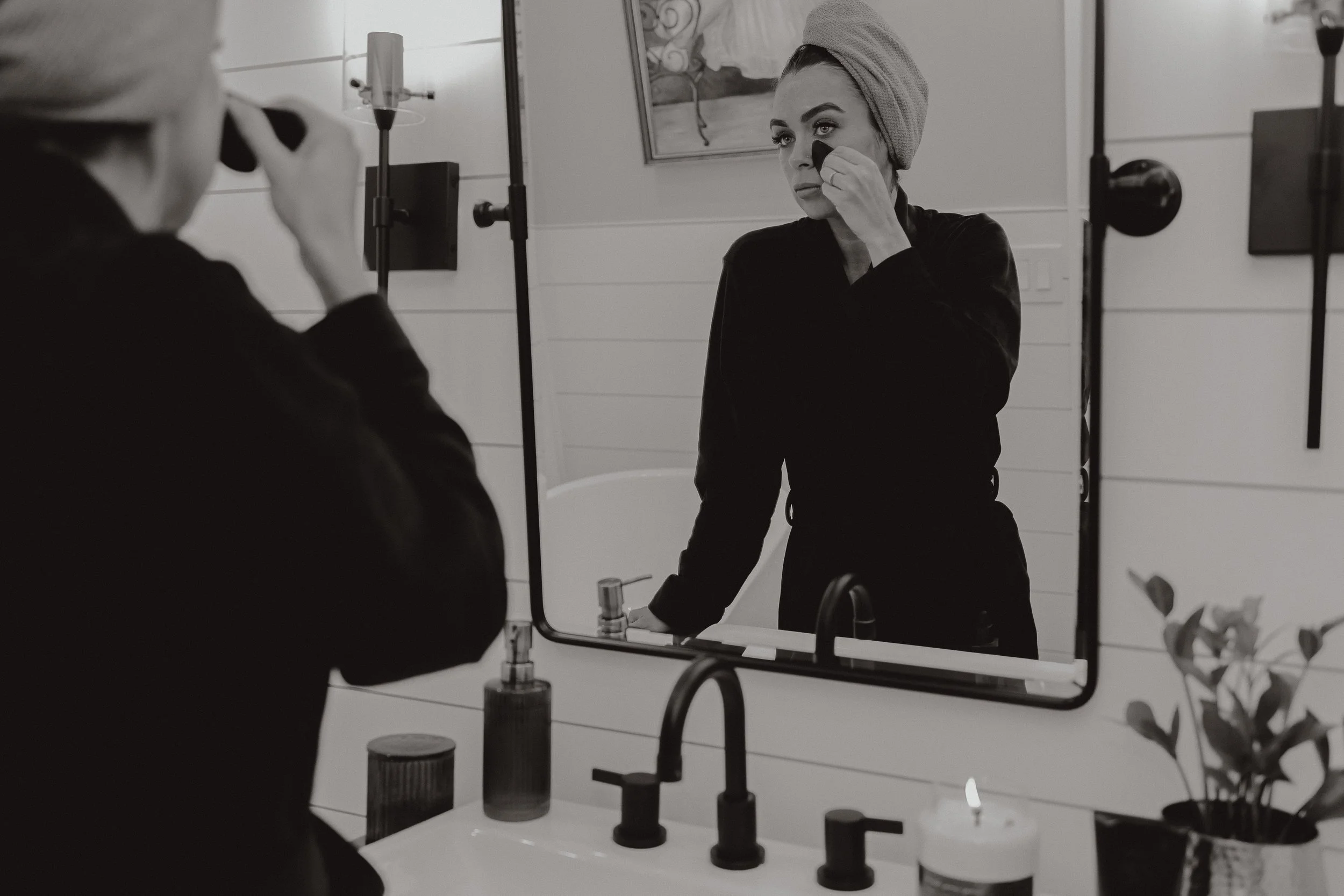Confiding in Others (Why It's Important and Tips to Keep it Healthy)
Trusting someone to confide in can be hard to do. It’s scary to trust someone to hold what’s vulnerable for us to say.
we fear judgement. we fear not fitting in.
Yet, the truth is that we connect more with others when we go beneath the surface. Going beneath the surface is where deep connection lives. It’s so important for your mental and emotional wellness to know who the people are in your life in which you can confide in.
On the flip side of things: someone confiding in you is a true honor. It’s something to be mindful & intentional about.
In short, when it comes to others confiding in you; be a vault.
Be respectful of what others chose to keep private and solely disclose to you. Find ways to refrain from talking about others personal lives when they’ve asked you to keep the conversation between you and them private.
With that said; use your healthy discernment to decipher if a topic is healthy for you to hold. (we’ll get into this more below)
Your ability to hold space for someone is important in so many ways; you’re proving to yourself that you can be trust worthy. You’re proving to the other party that you can be, which will earn you mutual respect and keep the connection healthy.
We act as a safe place for others when we refrain from telling what’s not ours to tell. It will eliminate so much drama, outward chaos and strained relationships if we can learn how to hold space for other in a healthy way.
Simply put; Be a person that sways away from the drama and chaos of gossip.
What does confiding in someone actually mean?
Google says: “To confide in someone is to tell them something privately. We confide in people we trust. We all have secrets and subjects that are hard to talk about. When we want to talk about something sensitive, we look for someone to confide in: a person we trust not to blab about our business to the rest of the world. “ -(google)
How about when someone confiding in you becomes heavy and feels unhealthy?
Sometimes what others are asking you to keep private is unhealthy for you to hold alone. There are times when what others are asking you to hold is putting you in a compromising position. This could look like being put in the middle of a mutual friends disagreement; where you feel like you’re hearing information about a mutual party that’s bringing you into the conflict. (This is called triangulation in the world of psychology. This basically means that one party is trying to draw you into their side of the issue. This tactic is manipulative and can cause a lot of emotional harm to our connections.)
This could look like hearing information that’s not healthy or appropriate for you to keep to yourself. A solid example of this is when someone discloses any sort of situation that is unsafe. (self harm, abuse, etc)
It’s a really difficult thing to navigate when we’re hearing information that’s either not meant for our ears or where we’re holding information about the safety of another that puts us in a questionable spot.
So, what do you do when someone confiding in you, puts you in a tricky spot?
Here are 4 quick tips on how to handle this kind of situation:
Don’t compromise your values / sense of self (ever). Any situation or piece of information that requires you to compromise your moral compass, what you value or believe in is something to really question and think twice about. This usually is a sign that what you’re being asked to keep silent is unhealthy.
Don’t act impulsively. If the situation allows for it; give yourself the time to reflect on the situation in order to make a grounded decision on how to handle it versus acting on your impulses.
Seek professional consultation. If a situation is beyond what a friendship could or should hold; it’s a good idea to seek professional help in order to proceed. This could look like calling the SAMHSA hotline or seeking guidance from a licensed professional.
Be straight forward. Share with the person whose confiding in you in a respectful and caring way that the information disclosed is concerning (or share what it’s bringing up for you.) Basically, what I’m saying is that it’s okay for you to be authentic with someone about how something is making you feel. Too often we validate why “we can’t” treat ourselves with the respect that we deserve.
I hope this post offers you some sense of direction in terms of how to navigate the tricky relationship situations that we can sometimes find ourselves in. When in doubt, trust your internal compass and pay attention to when something is not sitting well within.
*The above image by Photographer, Amy Lynn Bjornson.





























